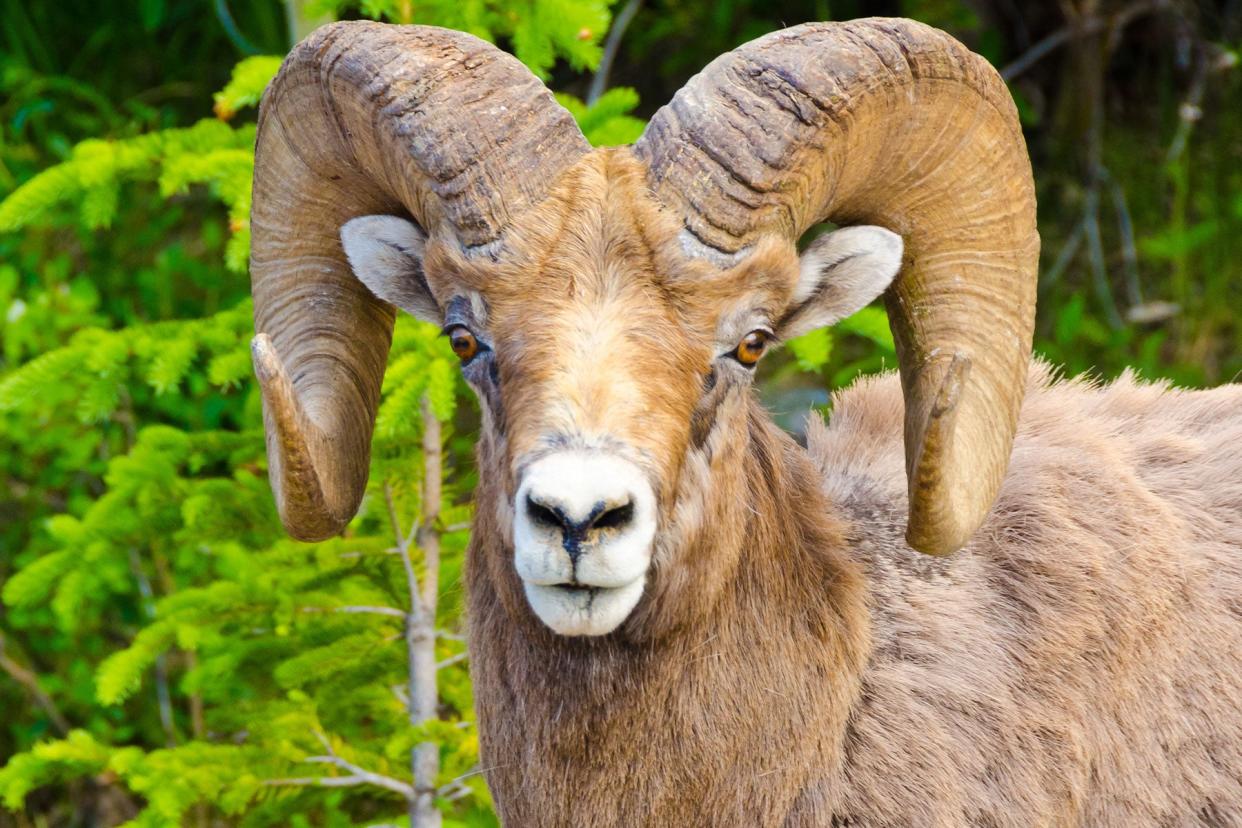A Montana Man Cloned and Illegally Bred Giant Hybrid Sheep for Captive Hunting

A Montana man recently pleaded guilty to two felonies after an elaborate and illegal scheme to create a hybridized super sheep to sell to high-fence hunting preserves. According to a U.S. Department of Justice press release, Arthur “Jack” Schubarth, 80, of Vaughn, Montana led a “yearslong effort to create giant hybrid sheep for captive hunting.”
Schubarth imported body parts of Marco Polo sheep from Kyrgyzstan without declaring them. “Marco Polo argali are native to the high elevations of the Pamir region of Central Asia. They are protected internationally by the Convention on International Trade in Endangered Species, domestically by the U.S. Endangered Species Act and are prohibited in the State of Montana to protect native sheep from disease and hybridization,” explains the U.S. Department of Justice.
Schubarth is the owner of a 215-acre, where he breeds “alternative livestock” to sell to high-fence hunting preserves. He sent DNA from the illegally imported Marco Polo sheep parts to a lab to create cloned embryos, which he then implanted into ewes on his ranch.
He managed to successfully birth a genetically pure Marco Polo ram, which he called the Montana Mountain King. His goal was to "create a larger and more valuable species of sheep to sell to captive hunting facilities, primarily in Texas", the Justice Department press release states. Schubarth even sold the Montana Mountain King's semen directly to breeders in other states.
He then reportedly worked with other conspirators to artificially impregnate other species of ewes. “This was an audacious scheme to create massive hybrid sheep species to be sold and hunted as trophies,” said Assistant Attorney General Todd Kim of the Justice Department’s Environment and Natural Resources Division (ENRD). “In pursuit of this scheme, Schubarth violated international law and the Lacey Act, both of which protect the viability and health of native populations of animals.”
Read Next: Colorado Legislators Want to Reintroduce Wolverines
Schubarth also illegally bought and sold wild Rocky Mountain bighorn sheep parts. The Lacy Act prohibits the interstate trade of wildlife that was taken, possessed, transported, or sold in violation to federal or state law. It also prohibits the interstate sale of falsely labeled wildlife.
For his crimes, Schubarth faces up to five years in prison, three years of supervised release, and $250,000 in restitution. “The kind of crime we uncovered here could threaten the integrity of our wildlife species in Montana,” said Ron Howell, Chief of Enforcement for Montana Fish, Wildlife & Parks. “This was a complex case and the partnership between us and U.S Fish and Wildlife Service was critical in solving it.”

